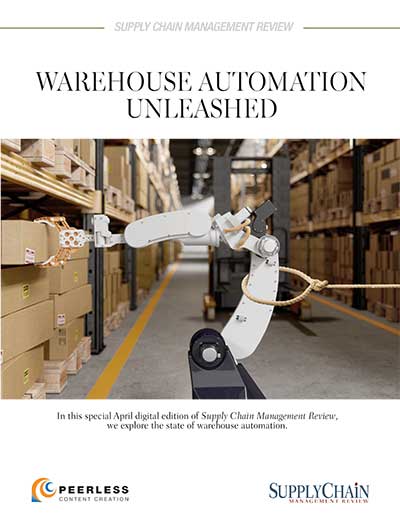Rumors that A.P. Moeller-Maersk A/S would split its operations into divisions concentrated on transportation and energy were realized last evening.
Maersk Line – the world's largest container shipping company – should consolidate its position and poise itself for even more growth, say maritime analysts.
According to Andrew Lubin, an international business professor at Rosemont Colleg, the global implications should be a major concern for logistics managers.
“Maersk upped the ante by being the first carrier to launch new generations of mega-vessels, says Lubin, thereby starting a competitive frenzy for ever larger ships. “At the same time, a severe decline in ocean freight rates resulted in three years of losses estimated in the $16 billion range,” he says. “With the majority of the carriers—except Maersk and Hapag-Lloyd—not offering financial results, one must look at the forced Cosco-CSCL merger, the Zim restructuring, or the rapidly-arranged Hapag-UASC merger to understand the severity of the losses.”
Shippers aren't entirely blameless for this situation, either, maintains Lubin. In fact, they may bear substantial responsibility.
“Despite years of claiming reliability was more important than price, Maersk was forced to abandon their ‘daily Maersk' service as the vessel's utilization rates were at best anemic. Shippers have pursued the cheapest rate for far tool long.”
Hanjin Shipping's receivership and bankruptcy filing suddenly exposed how fragile the world of shipping alliances and just-in-time supply chain management is these days, analysts add.
Sanne Manders, a chief analyst with Boston Consulting Group before joining the forwarding firm Flexport, says that his company had told shippers to stop booking on Hanjin months before its collapse. Now analysts are suggesting that Maersk may be in better position to purchase the abandoned assets of this company and those on the verge of similar insolvencies.
According to A.P. Moeller-Maersk Chairman Michael Pram Rasmussen, the Transport & Logistics division will consist of Maersk Line, APM Terminals, Damco, Svitzer and Maersk Container Industry businesses. Furthermore, Maersk Line has been “tasked” to examine possible acquisitions.
However, the historic event takes place at a time when shippers are trying to make sense of quickly shifting ocean carrier alliances and partnerships—with the viability of some players even brought into question.
As reported in Logistics Management—a sister publication—the mad ocean carrier race toward consolidation began earlier this year with the announcement of the 2M Alliance, comprising Denmark's Maersk Line, the shipping unit of A.P. Moller-Maersk A/S, and Geneva-based MSC. Together, they dominate the Asia-EU trade lanes with almost 35% of market share.
SC
MR

Latest Supply Chain News
- Tech investments bring revenue increases, survey finds
- Survey reveals strategies for addressing supply chain, logistics labor shortages
- Israel, Ukraine aid package to increase pressure on aerospace and defense supply chains
- How CPG brands can deliver on supplier diversity promises
- How S&OP provides the answer to in-demand products
- More News
Latest Resources

 Explore
Explore
Latest Supply Chain News
- Tech investments bring revenue increases, survey finds
- Survey reveals strategies for addressing supply chain, logistics labor shortages
- Israel, Ukraine aid package to increase pressure on aerospace and defense supply chains
- How CPG brands can deliver on supplier diversity promises
- How S&OP provides the answer to in-demand products
- AI, virtual reality is bringing experiential learning into the modern age
- More latest news
Latest Resources

Subscribe

Supply Chain Management Review delivers the best industry content.

Editors’ Picks





